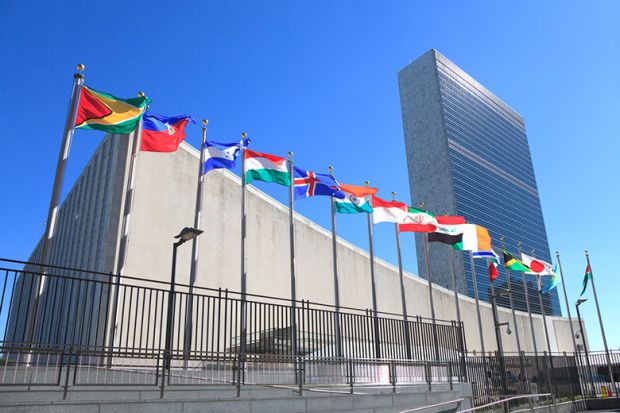The McDonald’s food chain extends to Guantanamo Bay and the Negev Desert; aeroplanes carry us over continents in a matter of hours; not only can we speak to people thousands of miles away, but we can also see them speaking to us. In such a globalised world, is morality as homogeneous as commerce, travel and technology? The United Nations Universal Declaration of Human Rights of 1948 declares that “all human beings are born free and equal in dignity and rights”. But how far have the human rights that it spells out actually impregnated ubiquitous everyday morality?
In 2014, as centennial chair for the Carnegie Council for Ethics in International Affairs, Michael Ignatieff began a three-year project to answer this question. He was determined to take ethical debate beyond boardrooms in New York to in situ dialogue with policymakers, businesspeople, religious leaders and activists in areas affected by ethnic conflict, poverty and corruption. The Ordinary Virtues describes this ethical fieldwork.
“Human rights remains an elite discourse” is Ignatieff’s disappointed conclusion. It is often dismissed as Western interference. Perhaps it does impact the “ordinary person”: they now feel, and assert, an entitlement to equality and free speech, but only (unreciprocally) for themselves and their group. Lacking a “shared narrative”, the “ordinary virtues” are stuck in “contextual singularity”.
Impartial empathy sometimes flashes through partisan loyalty, but only haphazardly. Subdun, a Bosnian, was both bereaved and rescued by Serb militia. “‘They’ murdered his father,” reports Ignatieff, “but ‘they’ also saved his family.” He now digs up human remains in local farmland, ensuring proper (re)burial by relatives after DNA identification. But Bosnians, Serbs and Croats uniformly “bristled” at talk of “reconciliation”, saying things such as “We live ‘side by side’, but we do not ‘live together’.”
And yet, Ignatieff concludes, “self-segregation” is perhaps the most sustainable form of pluralism, not just in the war-riven former Yugoslavia but in multi-ethnic US cities where the vaunted “commitment to equality, diversity, and tolerance – that is, living together – goes hand in hand with the actual practice of living apart”.
What makes the politics of minorities sectarian is simultaneously what gives it global extension. In Myanmar, the anti-Muslim monk Ashin Wirathu, according to Ignatieff, “believes he is fighting for embattled Buddhist civilisation as a whole”. The local protest in a small US town is liable to be directed less at a specific instance of police brutality than against the entire history of white privilege. Jihadists in their local Muslim community aspire to be “avatars of globalisation” by creating a worldwide caliphate purged of kafirs (non-believers).
That virtue would flourish if unfettered by state regulation is, says Ignatieff, fantasy. “Trustworthy public institutions” are a minimum requirement for trust and reciprocity. But democratic sovereignty is no failsafe guarantee – he finds post-apartheid South Africa bitterly disillusioning – and often clashes with universalist claims. Rather than invoking these as a standard, it is more effective to appeal to people’s localised sense of generosity. For Ignatieff, this is the best way to “turn the global back into the local” and “make virtue ordinary”.
Jane O’Grady is a founder of the London School of Philosophy, and taught philosophy and psychology at City, University of London.
The Ordinary Virtues: Moral Order in a Divided World
By Michael Ignatieff
Harvard University Press, 272pp, £22.95
ISBN 9780674976276
Published 29 September 2017
POSTSCRIPT:
Print headline: Living apart to keep the peace
Register to continue
Why register?
- Registration is free and only takes a moment
- Once registered, you can read 3 articles a month
- Sign up for our newsletter
Subscribe
Or subscribe for unlimited access to:
- Unlimited access to news, views, insights & reviews
- Digital editions
- Digital access to THE’s university and college rankings analysis
Already registered or a current subscriber?




